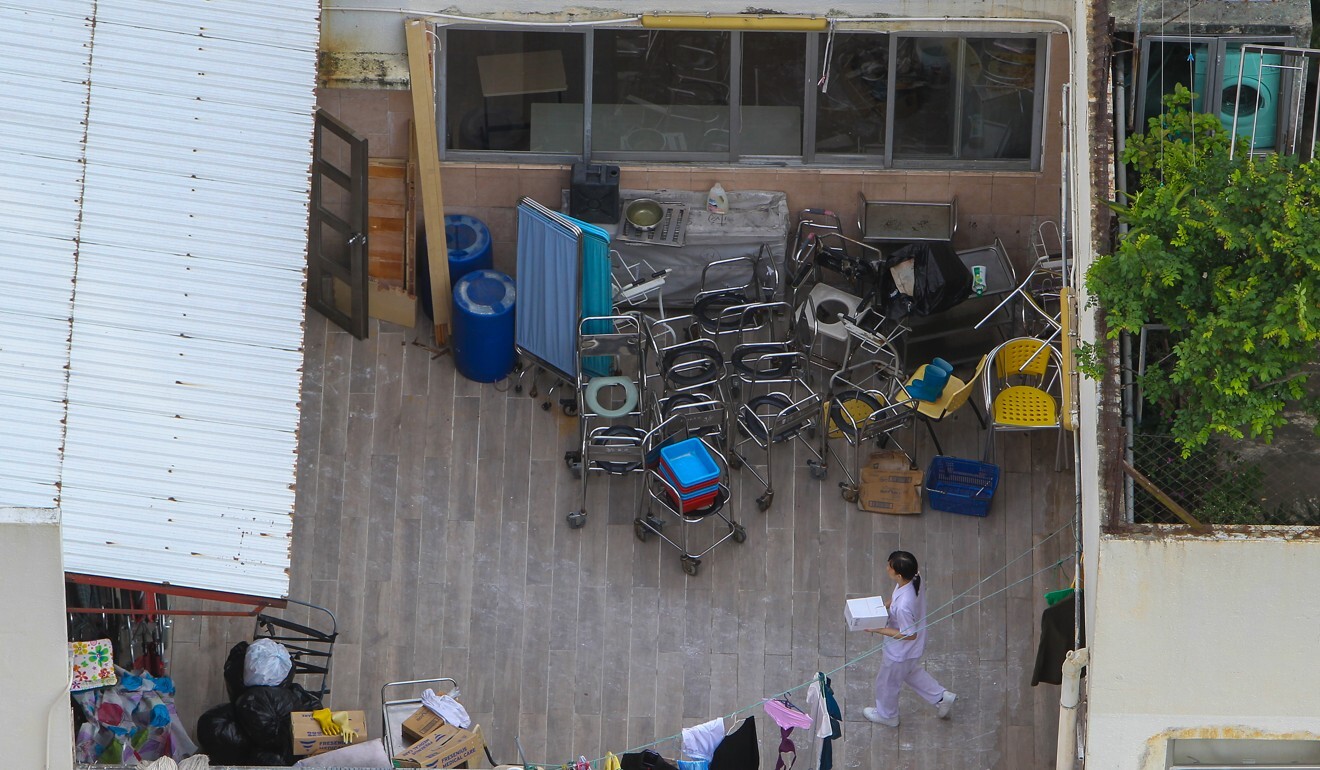
Hong Kong welfare chief promises ‘carrot and stick’ approach to improve lives of elderly in city’s care homes
- Secretary for Labour and Welfare Dr Law Chi-kwong says bill to tighten standards will be ready by the end of the year
- Law also pledges action after magistrate’s criticism over death of 60-year-old in 2016
A bill to tighten the standards at care homes for the elderly in Hong Kong should be ready by the end of the year, as part of a “carrot and stick” approach to improve the quality of services, the city’s welfare minister has said.
Among the measures would be the setting of a staff ratio, and increasing residents’ living space, Secretary for Labour and Welfare Dr Law Chi-kwong wrote in his official blog on Sunday.
Law also pledged to respond within six months to the Coroner’s Court, which had criticised the government’s inadequate action over the death of an elderly resident at a nursing home four years ago.
Concerns over lax monitoring of the city’s care homes rose last week, after the court called on the Social Welfare Department to step up prosecutions of those that ran care homes and broke the law.

The court made 10 recommendations to the department, including blacklisting non-compliant operators and limiting staff working hours.
The 60-year-old lived at the Cambridge Nursing Home in Ngau Tau Kok before he died in February 2016. He succumbed to pneumonia, but was found to have gauze and surgical tape lodged inside his rectum.
This was discovered by staff at United Christian Hospital, in Kwun Tong, where he was admitted for diarrhoea and vomiting. Cambridge staff members denied the abuse at the inquest.
The big picture on health care for the elderly that Hong Kong is missing
In his blog, Law said his bureau and the Social Welfare Department were studying the recommendations and would report back to the court in six months.
But he maintained that the government had been working to improve services at care homes since 2017, under an Elderly Services Programme Plan.
The plan included recruiting retired disciplinary services staff to help inspect homes and help investigate suspicious cases, and setting up expert teams in each district to support residents in their social and rehabilitation needs.
Law also said the government was adopting a carrot and stick approach to address the issue.
The government would purchase 5,000 places under the enhanced bought place scheme over the next five years to encourage care homes to upgrade their service standards, Law said.
The scheme involved recurrent expenditure of about HK$810 million.
‘More elderly people will die’: grim facts behind Hong Kong’s Covid-19 death surge
“The stick is to review the regulations,” he said. “This will include increasing the staff ratio and a standard of the area of average space for individual residents. Our aim is to be able to put forward a bill to the Legislative Council by the end of the year.”
But he rejected proposals that the average living space should be increased to 172 sq ft per resident, from the present 70 sq ft. He noted that boosting floor space could squeeze the overall supply of places, saying that to achieve the larger size would mean some 23,000 current places disappeared.
He also questioned the logic of asking the government to subsidise private care homes.
“Is it to ask private homes to become non-profit-making subsidised homes, or ask the government to give public money to these private institutions?” he said.
Grace Li Fai, a former chairman of the Elderly Services Association of Hong Kong, which represents the care home operators, said the crux of the problem was a staff shortage.
“Without adequate manpower, it is academic to talk about satisfactory services,” she said. “We hope the government can allow the import of workers to work at elderly homes.”

